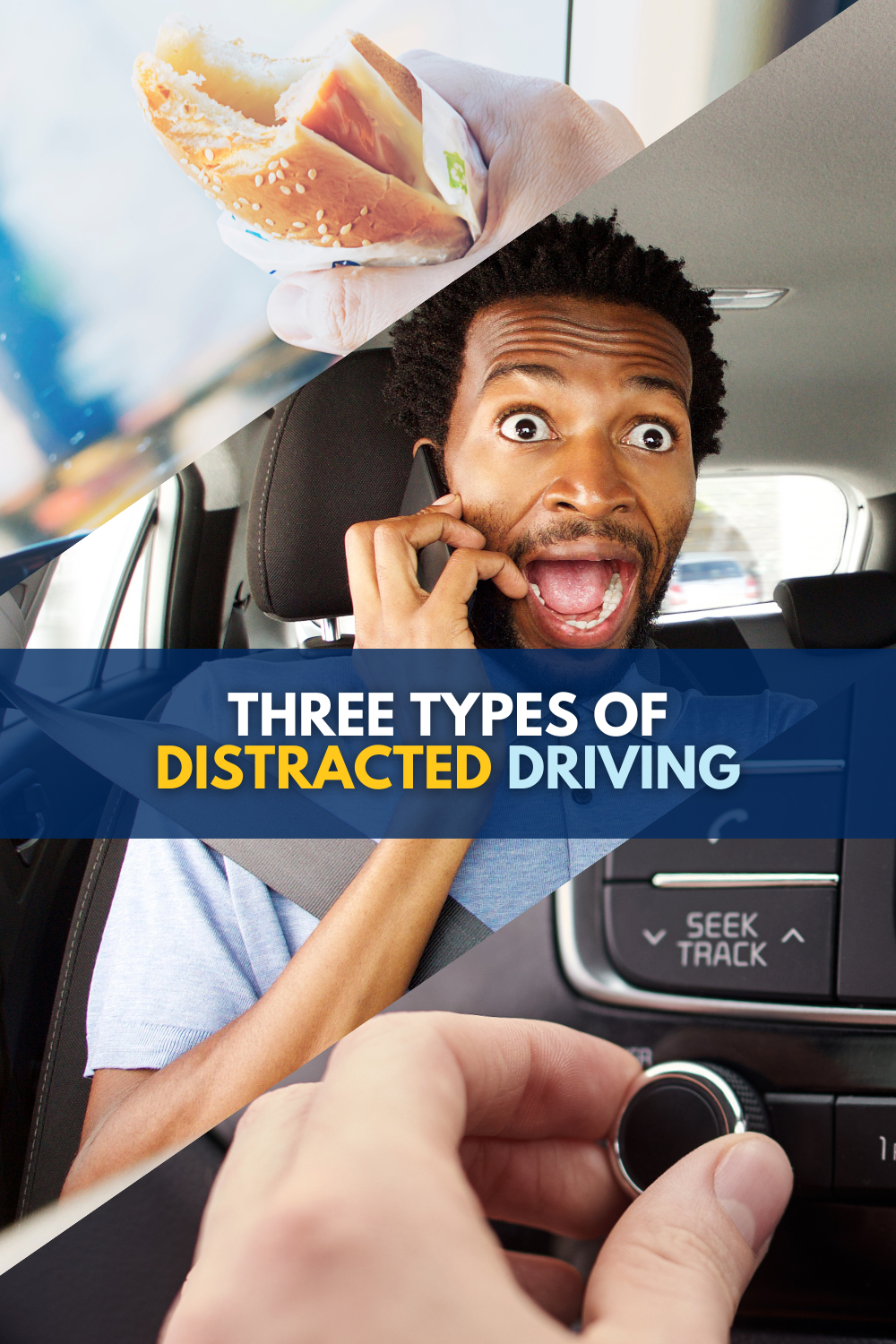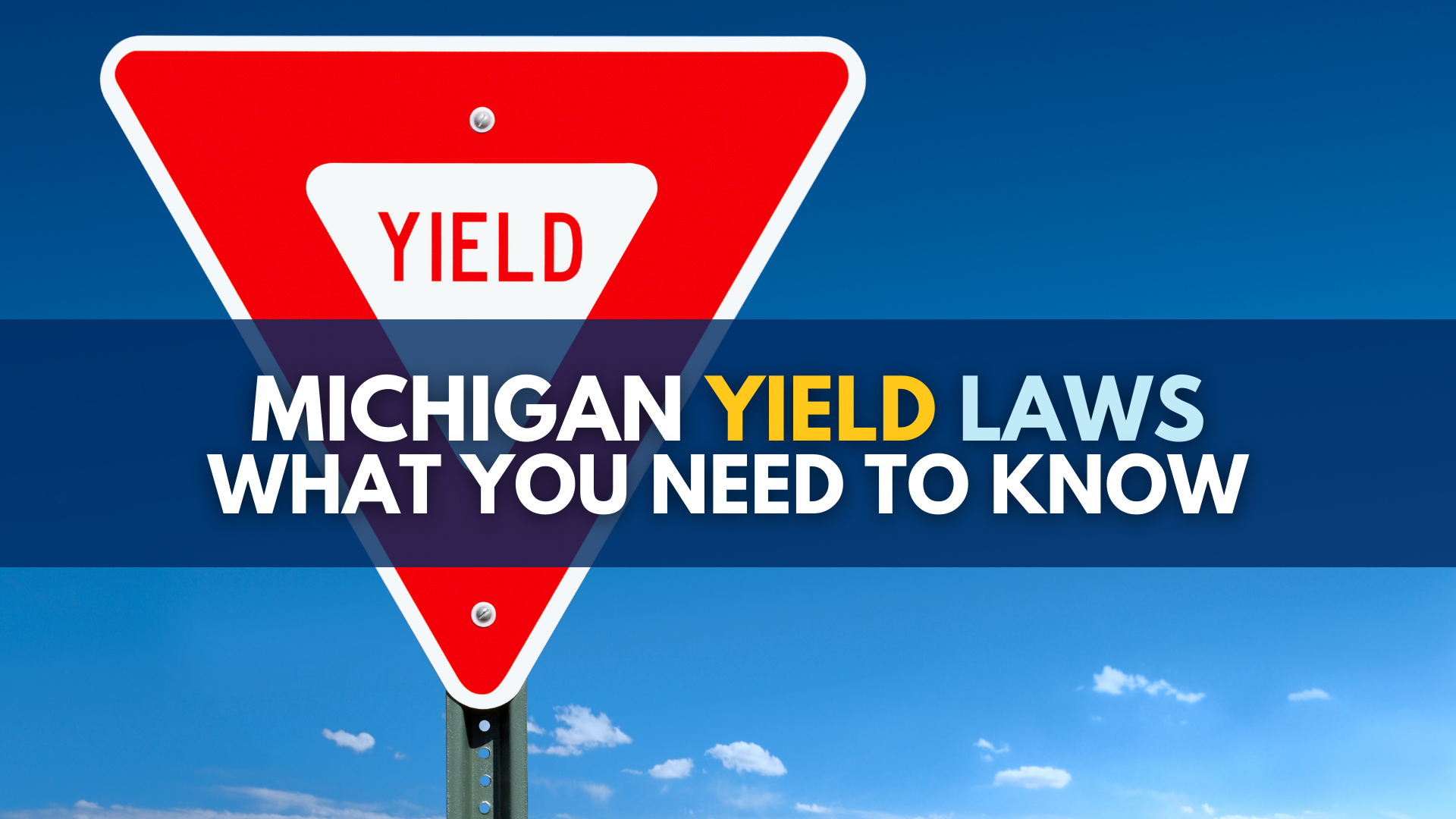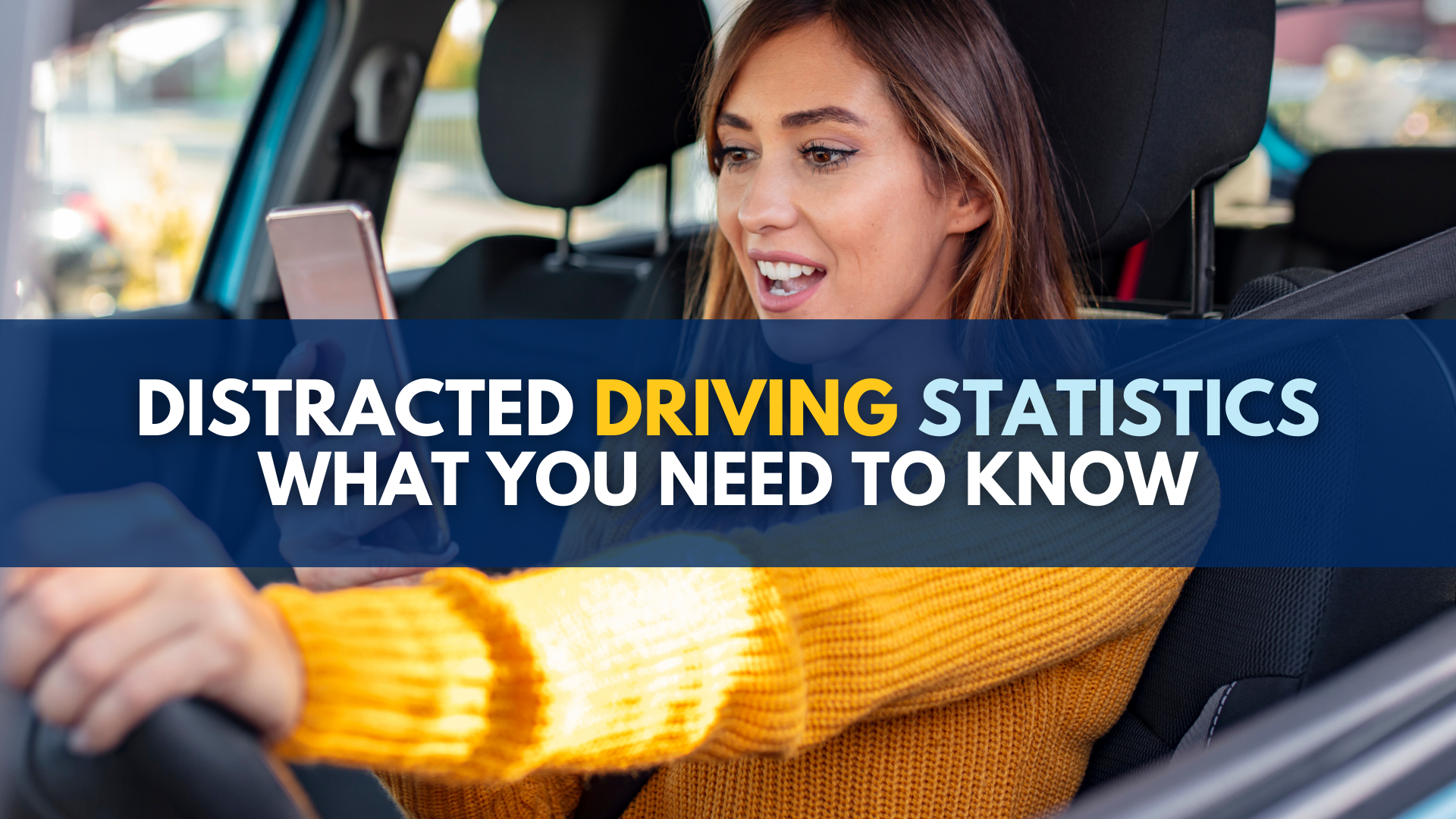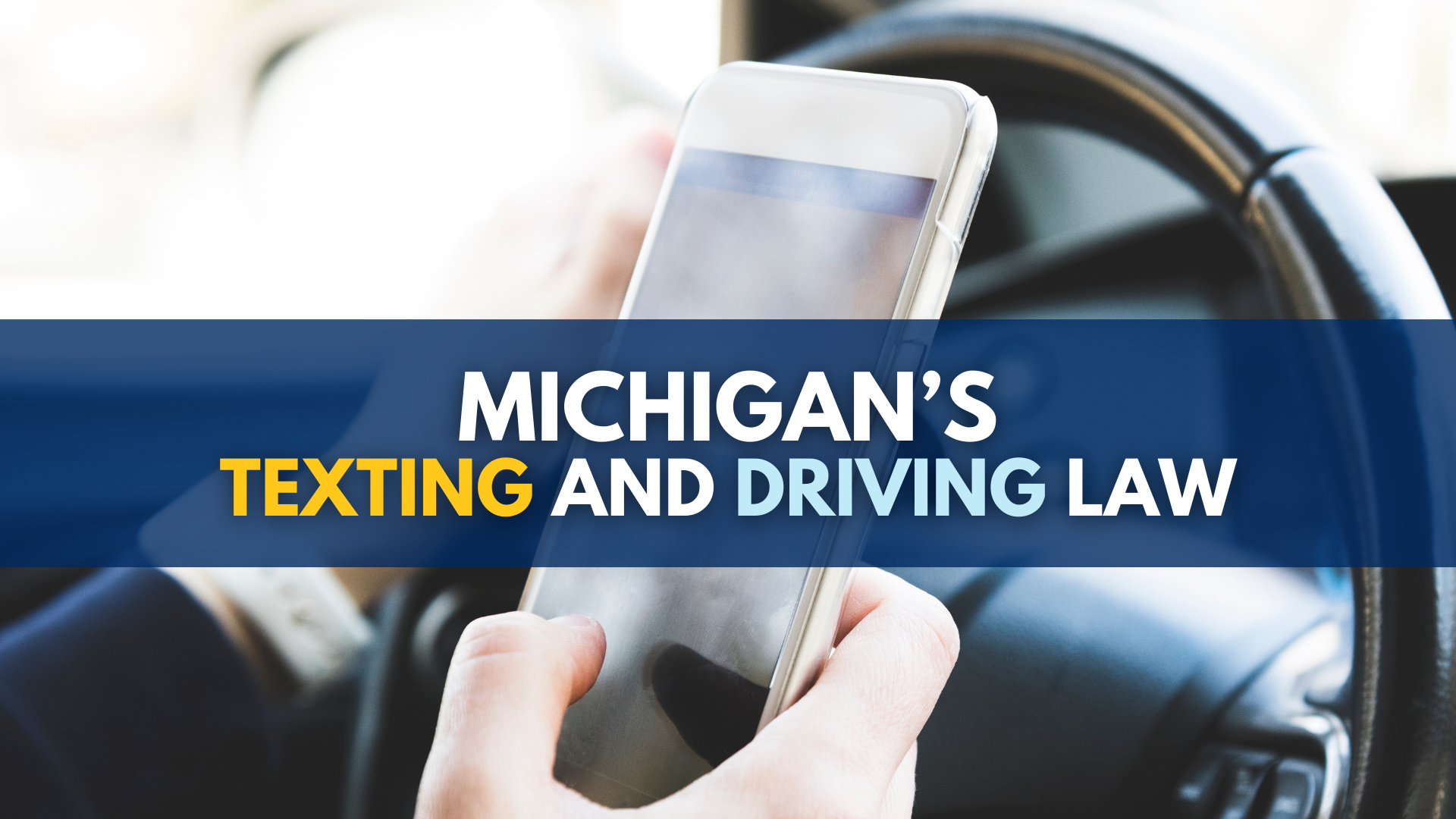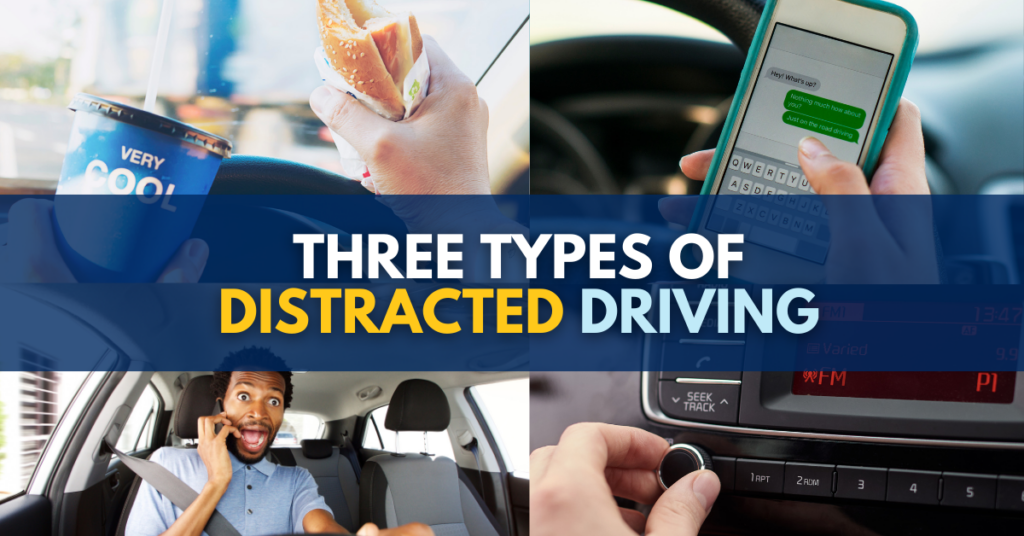
The AAA-Foundation for Traffic Safety (AAA-FTS) has identified the 3 three types of distracted driving as:
- Visual Distracted Driving – Taking eyes off the road
- Cognitive Distracted Driving – Mental distractions that take the driver’s mind off the task of driving
- Manual Distracted Driving – Taking your hands off the wheel
Those 3 types of distracted driving are creating increasingly dangerous and deadly situations for drivers. For example:
- “Text messaging made the risk of crash or near-crash event 23.2 times as high as non-distracted driving,” according to a study from the Virginia Tech Transportation Institute.
- The Virginia Tech Transportation Institute also found that “dialing a handheld cell phone” while driving made the driver “12 times more likely to crash.”
How To Identify The 3 Types of Distracted Driving
Drivers need to know how to identify the 3 types of distracted driving and remember just how dangerous they can be.
Visual distracted driving
In its research compendium, “Cognitive Distraction: Something to Think About – Lessons Learned from Recent Studies,” the AAA-FTS describes visual distracted driving as:
“Visual distractions [that] take the driver’s eyes off the road. Turning to look at a passenger is an example of this kind of distraction.” (Page 3)
Citing NHTSA research data, the AAA-FTS explained that “visual distractions” such as “glances away from the forward roadway lasting more than two seconds increased the risk of a crash or near-crash to over two times that of ‘normal’ driving.”
Cognitive distracted driving
Cognitive distracted driving (or a cognitive source of driver distraction) is described by the AAA-FTS in its “Cognitive Distraction” research compendium as:
“Cognitive, or ‘mental,’ distractions [that] take the driver’s mind off the task at hand (safe driving). Worrying about a job interview or dwelling on an intense conversation while behind the wheel might constitute cognitively-distracted driving. Any form of visual or manual distraction inherently involves an element of cognitive distraction, as well.” (Page 3)
As we can see from the results of the AAA-FTS study, “Measuring Cognitive Distraction in the Automobile,” some driver distractions are more cognitively distracting than others:
“Some activities, such as listening to the radio or a book on tape, are not very distracting. Other activities, such as conversing with a passenger or talking on a hand-held or handsfree cell phone, are associated with moderate/significant increases in cognitive distraction. Finally, there are in-vehicle activities, such as using a speech-to-text system to send and receive text or e-mail messages, which produced a relatively high level of cognitive distraction.” (Page 4)
Significantly, with this type of distracted driving, researchers recognized how valuable these findings could and should be to conscientious, safety-focused lawmakers:
“These findings can be used to help craft scientifically-based policies on driver distraction, particularly as they relate to cognitive distraction stemming from the diversion of attention to other concurrent activities in the vehicle.” (Page 4)
In its study, the AAA-FTS tested for cognitive distractions by assessing drivers’ “mental workload” as they performed eight tasks while driving (though none of the tasks required drivers to take their eyes off the road or take their hands off the steering wheel). (Page 3)
Manual distracted driving
The AAA-FTS’s research compendium said the following about manual distracted driving:
“Manual distractions [that] take the driver’s hands off the wheel. For instance, when a driver is holding food or a beverage, he or she is manually distracted.” (Page 3)
The AAA-FTS noted that a previous “study of teen drivers found – through in-vehicle video recordings – that manual distractions (e.g., operating electronic devices, adjusting controls, etc.) were the most common behaviors observed.”
Stay Focused On The Road
As studies show, driving and multitasking don’t mix. It’s imperative that drivers know what the 3 types of distracted driving are so they can stay focused on the road ahead and don’t fall victim to being distracted while driving.
Injured in a car accident? Call the attorneys at Michigan Auto Law now!
These 3 types of distracted driving are dangerous. If you are injured in car accident that was caused by a distracted driver call now at (855) 932-1417 for a free consultation with one of our experienced car accident lawyers. There is no cost or obligation. You can also visit our contact page or use the chat feature on our website.
Michigan Auto Law is Michigan’s largest and most successful law firm that specializes exclusively in helping people who have been injured in auto accidents.
Our secret? Our attorneys deliberately handle fewer cases than other personal injury law firms. This allows us to focus more time and attention on our cases.
Unlike other law firms, our attorneys are never too busy to promptly return phone calls and answer questions.
We have more than 2,000 5-Star reviews that reflect this care and attention to detail.
More importantly, this client-focused approach leads to better and faster settlements for our clients. Michigan Auto Law has recovered more million-dollar settlements and trial verdicts for motor vehicle accidents than any other lawyer or law firm in Michigan. We’ve also recovered the highest ever reported truck accident and car accident settlement in the state.
Call now so we can start making a real difference for you.
(Sources : “Measuring Cognitive Distraction in the Automobile,” AAA-Foundation for Traffic Safety; “Cognitive Distraction: Something to Think About – Lessons Learned from Recent Studies,” Research Compendium, AAA-Foundation for Traffic Safety)
